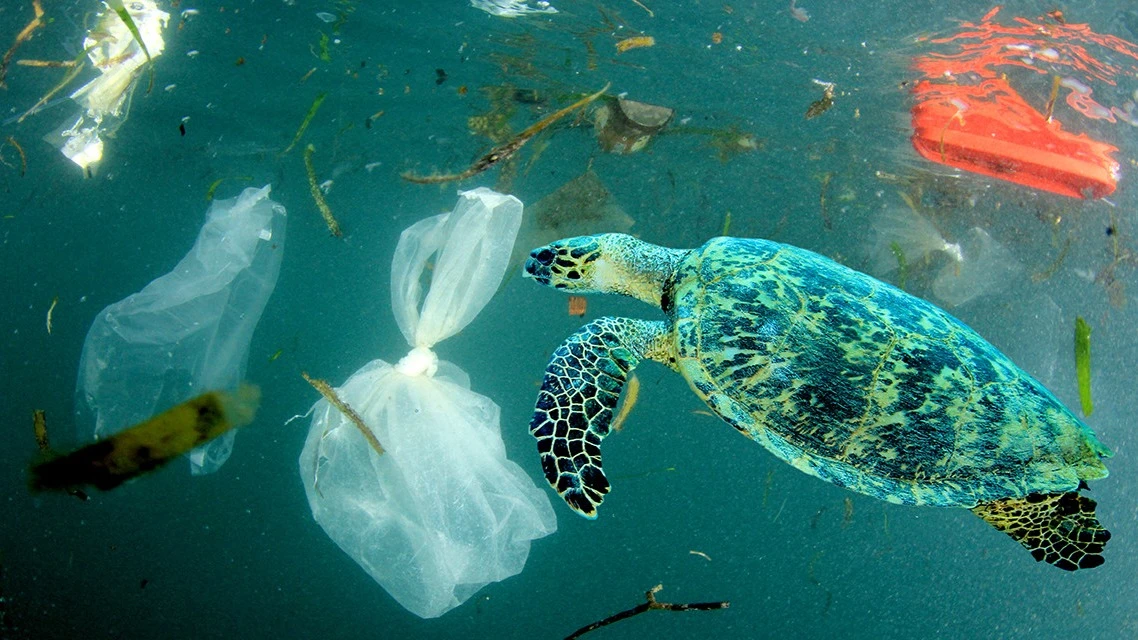TACKLING PLASTIC POLLUTION: Urgent call to safeguard ocean marine resources

When it comes to the ocean, not everyone fully understands its significance to human life, marine biodiversity, and the global environment. Yet, the ocean plays a vital role in our survival. It supports food systems, regulates the climate, and sustains marine resources that millions rely on. That is why protecting it from pollution, especially from plastic waste, is an urgent priority.
To address this issue, marine ecologists are being urged to develop targeted educational programs for school pupils, local government leaders, business stakeholders, policy makers, communities, and artisanal fishers. These programs should focus on the dangers of plastic pollution and its harmful effects on human health, fish stocks, and other marine life.
These educational efforts should not only raise awareness but also foster behavior change and empower individuals to prevent plastic waste from entering the ocean.
Eng. Omar Mohamed, the Blue Economy Ministry Coordination Officer, made these remarks during a recent workshop on the blue and circular economy for African journalists from the Indian Ocean region. The event, funded by Geneva-based Africa 21, emphasized the urgency of curbing marine pollution.
He stressed that countries such as Zanzibar, mainland Tanzania, and others across the globe must stop dumping plastic waste into the sea. “We don’t know whether plastic bottles and other plastic waste entering the ocean are toxic,” he said. “We also don't know if the fish consuming nano-particles from broken-down plastics pose a threat to human health.”
This uncertainty, he argued, underscores the need for further scientific research to determine the risks. If people understand the dangers, they may be less likely to dispose of plastic waste inappropriately.
Eng. Mohamed added that if immediate action is not taken, the Indian Ocean could become overwhelmed by plastic waste, including bottles, bags, and other debris that threaten marine life.
Proper waste management is essential to prevent plastic from entering waterways. Communities must be educated on managing plastic waste responsibly and keeping it away from oceans, rivers, and lakes to protect ecosystems and livelihoods.
Eng. Mohamed believes that understanding the role of the ocean, and the impact of plastic on marine resources and human health, will motivate people to adopt better practices. Schools, community meetings, radio, and TV programs should all be used to reach wider audiences and promote awareness.
Zanzibar currently faces significant marine pollution. Plastic waste is routinely discarded into the sea, and hotel operators discharge untreated wastewater due to the lack of centralized sewage systems. This water may contain harmful pathogens that threaten both marine life and public health, especially since some residents use seawater for drinking and recreation.
Eng. Mohamed proposed the establishment of central sewage systems. Treated wastewater could then be used for agriculture or discharged safely, only after experts deem it safe.
Dr. Lydia Gaspare, a lecturer in Fisheries and Ecology at the University of Dar es Salaam, highlighted that plastic pollution is one of Tanzania’s greatest marine challenges. The issue is driven by rapid population growth, an expanding tourism industry, lifestyle changes, and insufficient waste management strategies.
Tanzania’s urban areas are expected to generate 26 million tons of solid waste annually by 2030. Mismanaged waste contributes to environmental degradation, health issues, and climate change. According to Dr. Gaspare, only 5 percent of this waste is regularly collected, while much of the rest is burned, dumped, or buried—some of it ending up in rivers and the ocean.
Plastic pollution blocks storm drains, causes flooding, and affects food security. Microplastics have been found in marine sediments, surface waters, and aquatic species in Dar es Salaam and Zanzibar. These particles affect fish digestion and growth, threatening marine food chains and long-term food security.
In March 2022, Dr. Gaspare and her team conducted a marine litter survey at 13 Tanzanian beaches. Eleven sites were in mainland Tanzania and two in Zanzibar. Most sites had litter densities ranging from 1.04 to 3.9 items per square meter—classified as extremely polluted. Others ranged from 0.27 to 0.9 items per square meter and were moderately polluted.
Plastic comprised 65.9 percent of all marine litter observed. However, limited data exists on the overall prevalence and sources of plastic in Tanzania’s coastal environment. Dr. Gaspare emphasized the need for more research and quantitative data to understand trends and design effective interventions.
She recommended comprehensive research into the accumulation and movement of plastic waste in various ecosystems—including beaches, mangroves, coral reefs, rivers, and inland areas. Understanding the socio-economic and political drivers of pollution is also vital.
She stressed the importance of household waste sorting, public education on health risks, and developing policies and regulations to reduce plastic waste effectively.
Henry Kazula, a sustainability consultant and climate action strategist at Women Action towards Economic Development (WATED), called for stronger efforts by civil society, NGOs, and government ministries to combat plastic pollution. These groups should advocate for responsible consumption and integrate waste management education into school curricula.
He called for government investment in waste management infrastructure and recycling technology to reduce plastic waste, which endangers marine biodiversity and contaminates water bodies.
International cooperation is also essential. Partnerships with global organizations, governments, and businesses can help establish standards for reducing and managing plastic waste.
The government should allocate dedicated areas where recycling businesses can access plastic waste to produce eco-friendly packaging. This approach reduces plastic leakage into the environment and promotes a circular economy.
According to a 2021 report by the International Union for Conservation of Nature (IUCN), at least 14 million tons of plastic enter the ocean each year. Plastic makes up 80% of marine debris, found from surface waters to deep-sea sediments. It pollutes shorelines across continents—especially near tourist hubs and urban centers.
Most plastic in the ocean originates from land—urban runoff, littering, inadequate waste disposal, industrial discharge, and illegal dumping. The fishing industry and marine transport also contribute significantly.
Many countries lack the infrastructure to manage plastic effectively. As a result, plastic waste leaks into rivers and oceans. Global trade of plastic waste may also cause ecological harm when destination countries lack proper waste management systems.
With over 300 million tons of plastic produced annually—half of it for single-use products—urgent action is required. Without proper disposal, this plastic continues to harm the environment and biodiversity.
There is an urgent need to develop and strengthen legally binding agreements to combat marine plastic pollution.
Top Headlines
© 2025 IPPMEDIA.COM. ALL RIGHTS RESERVED






















